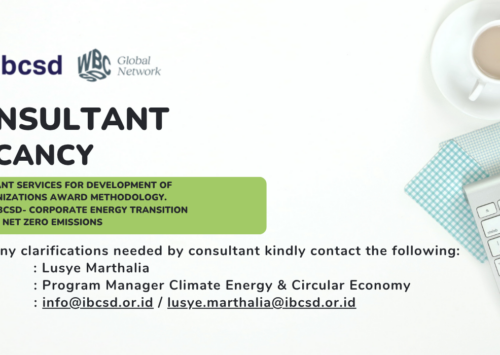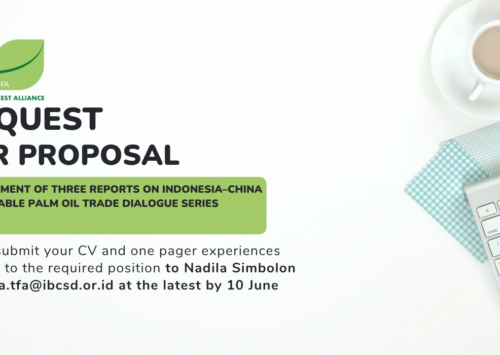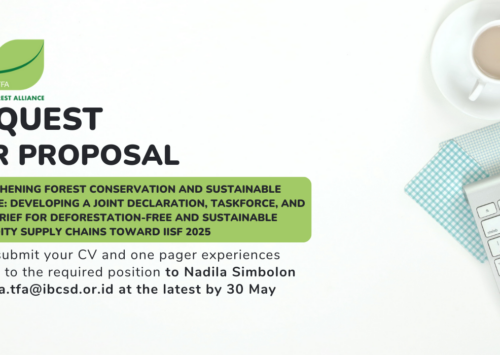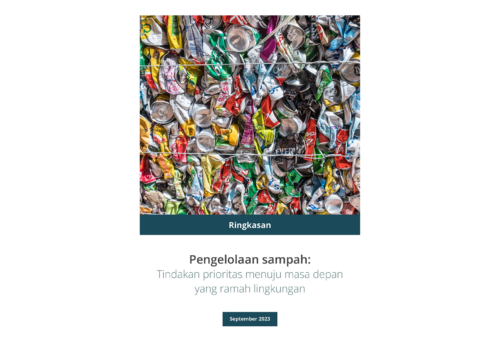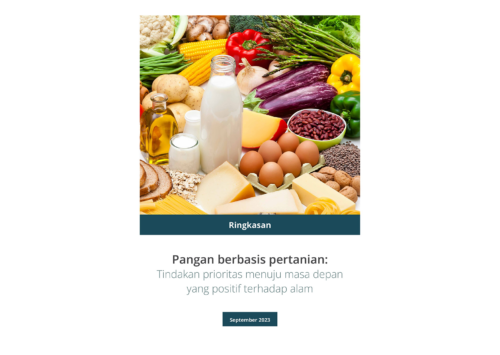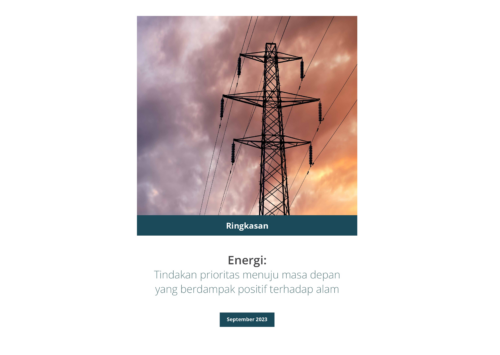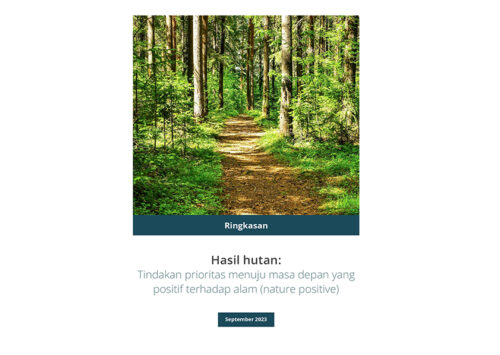Fierra Setyawan, Project Manager of Food and Nature IBCSD, said: “Reducing food waste is crucial for sustainability, and we can start by selecting and sorting the food we consume at home. Indonesian communities have traditional food-saving practices like making beef jerky, meat floss, and rendang from meat, and even transforming leftover rice into chips. Sego Kucing, a small serving of rice wrapped in banana or teak leaves with a mix of tofu, anchovies, and vegetables, is an excellent example of how to consume food efficiently as we only consume what we need to prevent food waste. Along with the spirit to reduce food waste in Indonesia, in 2021, IBCSD launched the GRASP2030 initiative, aimed at halving food loss and waste by 2030. We bring together businesses and supporting actors across the food chain, to eventually promote environmental sustainability, social responsibility, and economic growth in Indonesia. This year marks our third year on this journey, and with our Consumindful campaign we’re more committed than ever to achieving our goal of halving food waste by 2030.”
Jackie Bailey, Love Food Hate Waste campaign manager, said: “In our busy lives, many of us wish we had more time. One simple way around this is to use up those extra portions we often seem to have; a simple solution that could help you get some life back and turn food we’ve already cooked into a second delicious meal!
For this year’s Food Waste Action Week, we’re encouraging the nation to follow ‘Win. Don’t Bin’ and highlighting the very real benefits that using up your uneaten food can have on your pockets, your personal time and the planet.
Even more importantly, at a time of rising food prices, tackling food waste at home is one way we can all make a difference – and help save money.”
Objectives of Food Waste Action Week:
- The third annual FWAW will build on the success of last year’s campaign which was supported by 80 organisations across 12 countries. The campaign reached over eight million people in the UK, with 55% of them saying they did something about food waste as a result.
- Focusing on the theme of ‘Win. Don’t Bin’, the 2023 campaign will demonstrate how valuable food is in our lives, and how using up everything we buy can save us money and time.
How will the campaign help people reduce their food waste?
- WRAP estimates that 1.1 million tonnes of food are wasted every year from UK homes because of preparing, cooking, or serving too much.
- That’s one-quarter of all food wasted for this reason, costing people £3.5 billion. Increasing people’s skills around using up leftovers will have a significant impact on reducing food waste from UK households at a key point in the journey of food through the home – just before it ends up in the bin.
- These skills involve putting leftovers in an appropriate container, labelling and storing in the fridge or freezer and then re-heating or eating cold at a later stage. WRAP’s research* has shown that many people lack confidence in this area so LFHW wants to support citizens to try to increase confidence in these areas.
Why is reducing our food waste important?
- Research estimates that wasting food costs the average UK family more than £700 a year.
- We throw away 6.6 million tonnes of household food waste a year in the UK. This food waste is responsible for nearly 25 million tonnes of CO2 emissions, equivalent to 5.4% of the UK’s territorial emissions.
- The majority, 4.5 million tonnes is food that could have been eaten and is worth approximately £14 billion (or £60 a month for an average family with two children).
- 5-19 million tonnes of food are wasted per year in Indonesia, according to the report from the Ministry of National Development Planning.
- Losses from food loss and waste during 2000-2019 costs Indonesia 213-551 trillion rupiah/year, or equivalent to 4-5% of Indonesia’s GDP. Number of people who can be fed from energy losses from food loss and waste during those years are 61-125 million people or 29-47% of Indonesia’s population.
About the Partners:
- WRAP is a climate action NGO working around the globe to tackle the causes of the climate crisis and give the planet a sustainable future. It delivers the Love Food Hate Waste campaign. WRAP’s vision is a thriving world in which climate change is no longer a problem. We believe that our natural resources should not be wasted and that everything we use should be re-used and recycled. We bring together and work with governments, businesses and individuals to ensure that the world’s natural resources are used more sustainably. Our core purpose is to help tackle climate change and protect our planet by changing the way things are produced, consumed and disposed of.
- Love Food Hate Waste (@lfhw_uk) aims to raise awareness of the need to reduce food waste and help the UK public act. It shows that by doing some easy practical everyday things in the home we can all waste less food, which will ultimately benefit the environment, and our pockets too. Love Food Hate Waste is managed by WRAP.
- *UK Household Food Waste tracking survey Winter 2021: behaviours, attitudes, and awareness
WRAP’s work includes: UK Plastics Pact, Courtauld Commitment 2030, Textiles 2030 and the citizen campaigns Love Food Hate Waste, Clear on Plastics and Recycle Now. We run Food Waste Action Week and Recycle Week
